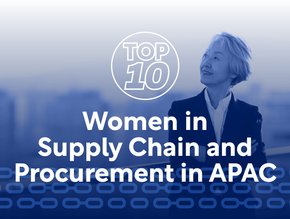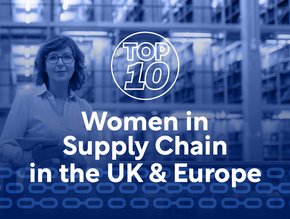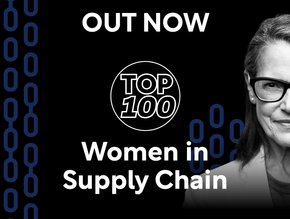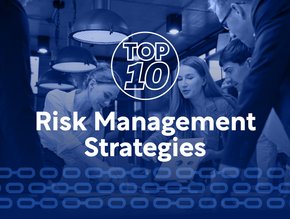Top 10 green supply chains
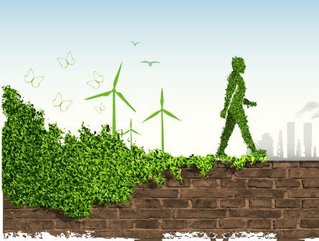
Some companies have discovered a large portion of their carbon emissions result from outside operations, for example sales and distribution. The drugs giant GSK is one which realised, regardless of whether outside operations are outsourced, the opportunity for significant carbon footprint reduction – 80 percent in GSK’s case – comes from indirect emissions, and have begun to look at how to fix it.

9. Marks and Spencer and MAS Holdings
The British-based retailer worked with supplier, MAS, on the first of four 'eco-factories' opened in May 2008. Designed to be carbon neutral, the lingerie factory, in Thuruliya, Sri Lanka, combines energy saving devices, renewable energy, waste reduction processes and a healthy working environment. It uses 40 percent less electricity than similar factories and enabled Marks and Spencer to launch the first ever carbon neutral bra.
8. BT (British Telecom)
BT has three Climate Change Procurement Principles in its Procurement Governance Framework. First is to harness the capability, diversity and innovation of its supply base for the business and encourage suppliers to reduce environmental impact (EI), secondly, that energy consumption and EI of a service is mandatory in tender adjudication and thirdly, that energy consumption and EI of any replacement service is less than its predecessor.
7. Nike
The American sportswear brand has taken big steps to ‘green’ its supply chain. The company’s website states: “Every product and partner, every decision, every gateway, every stage from concept to reclamation adds to a near infinite ecosystem of cause and effect. To offer as much clarity into this ecosystem as possible, we’ve distilled it down to seven fundamental stages – Plan, Design, Make, Move, Sell, Use, Reuse.”
6. Adobe Systems
In 2012, the American software company launched an environmentally sensitive redesign of its software packaging. Plastic was abandoned in some areas and discs were packaged with one layer of cardboard overwrap instead of three, using the innovation of Martini Design, a small design company. Martini said, the aim was to “dematerialise the package while maintaining durability and a large surface area for shelf presence in stores”.
5. Toyota
In June the Japanese automaker was declared the world's Best Global Green Brand for the third year running by the 2013 Best Global Green Brands report, compiled by international brand consultancy Interbrand.
It has been one of the forerunners and has reduced emissions connected with its logistics processes, achieving results through improved assets utilisation, sharing vehicle transportation with other companies, and modal shifts.
4. UPS
American logistics Company UPS recently announced that all of the new 700 class 8 trucks it will be running from late 2013 into 2014 will be powered by liquefied natural gas (LNG). The company also provides paperless invoices for international shipments and claims to use pioneering fuel conservation strategies.

3. Maersk Line
While it may seem crazy to include a container ship company among a green list – said to contribute 4 percent of the world’s greenhouse emissions – Maersk deserves praise for reviewing its 2,000 suppliers and signing 1,500 of them up to its Responsible Procurement. In 2012 Maersk had already reached its 2020 target of reducing CO2 emissions by 25 percent per container from 2007 levels.
2. Johnson and Johnson
The American medical devicesand pharmaceutical goods manufacturer is a rare example of a non-tech or automotive company hitting the heights of carbon reduction. While it has an external supply chain, it claims to be committed to ensuring operations conducted on its behalf are consistent with its values.
As a participant in the Carbon Disclosure Project’s (CDP) Supply Chain Program, it encourages suppliers to measure energy use and greenhouse emissions, and develop and publicly report their reduction plans.
1. Shaklee
This little known American natural nutrition products company was the first in the world to obtain Climate Neutral™ certification and totally offset their CO2 emissions, resulting in a net zero impact on the environment.
This means that on any list, whether it is broadly about businesses or focusing in on their supply chains, as this list is, Shaklee will come top.

The company was founded 60 years ago with Dr. Forrest C. Shaklee, whose philosophy of Living in harmony with nature fueled an ongoing movement to help people live happier and healthier.
The company is known for tackling carbon reduction before it was fashionable, going above and beyond industry standards to ensure their operations are green.
The company’s supply chain involves franchised Shaklee businesses and distributors who have to agree to follow environmental standards and to date the company has paid more than $6 billion in commissions to its distributors.

